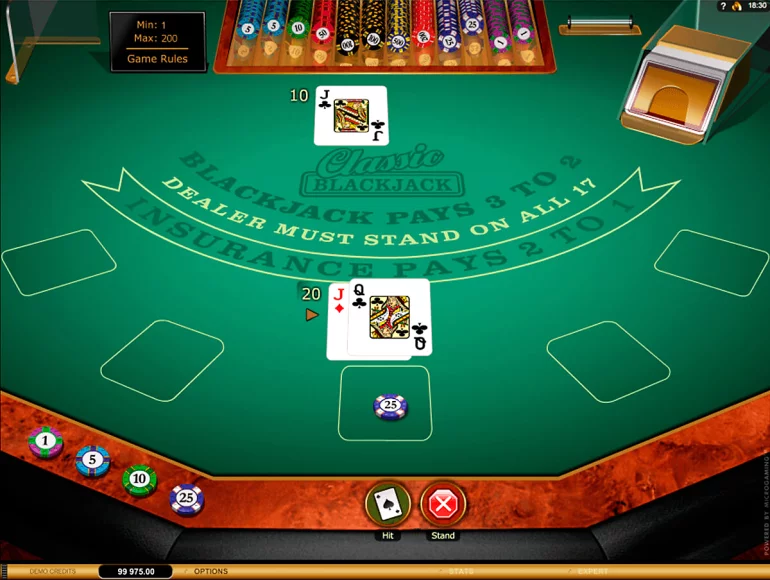Understanding blackjack starting hands is fundamental for any player looking to improve their game. Your initial two cards dictate your immediate decisions and significantly influence your chances of success. This guide explores the various starting hand combinations, their inherent odds, optimal strategies, and valuable tips to help you make informed choices at the blackjack table.

Keep in mind that all statistics below are valid for the six-deck blackjack.
The Importance of Your First Two Cards in Blackjack
In blackjack, every decision begins with your starting hand. Whether you receive a strong total, a tricky soft hand, or a potentially problematic hard total, knowing how to play each combination correctly is crucial.
The goal is always to achieve a total closer to 21 than the dealer, without exceeding it.
Your starting hand provides the initial framework for this pursuit.
Blackjack Starting Hands and Their Odds
Certain starting hands give you a significant advantage, offering the highest chances of winning.
Natural Blackjack (Ace + 10-value card)
The ultimate starting hand is a natural blackjack, consisting of an Ace and any 10-value card (10, Jack, Queen, King). This immediately pays out 3:2 (or sometimes 6:5, which is less favorable) unless the dealer also has a natural blackjack, resulting in a push.
The probability of being dealt a natural blackjack is approximately 4.8% (for a single deck game, slightly varying with more decks).
Pairs of Aces (A, A)
When you're dealt a pair of Aces, the optimal strategy is always to split them. Each Ace then acts as 1 or 11, giving you two excellent opportunities to hit 21. Splitting Aces effectively doubles your potential for strong hands.
The odds of getting a pair of Aces are about 0.45% per hand.
Pairs of Eights (8, 8)
A pair of eights totals 16, which is widely considered the worst hard total to have. It's too high to hit comfortably and too low to stand confidently. Therefore, the strategic play is always to split eights. This breaks up a weak 16 into two hands starting with 8, giving you a much better chance to improve each hand with a hit.
The probability of being dealt 8,8 is around 0.45% per hand.
Common Blackjack Starting Hands and Strategy
Most of your hands will fall into categories that require strategic decisions based on the dealer's upcard.
Hard Totals (Hands without an Ace or where Ace counts as 1)
- 17-20: Always stand. The risk of busting outweighs the potential benefit of hitting.
- 12-16: These are "stiff" hands. Your decision depends heavily on the dealer's upcard. If the dealer shows a 2, 3, 4, 5, or 6 (a "busting card"), you should stand, as the dealer has a higher chance of busting. If the dealer shows 7 or higher, you should hit.
- 11: Always double down, unless the dealer has an Ace (in which case, just hit). You have an excellent chance of getting a 10-value card.
- 10: Double down if the dealer has a 2 through 9. Hit otherwise. You have a good chance of getting a 10-value card.
- 9: Double down if the dealer has a 3, 4, 5, or 6. Hit otherwise.
Soft Totals (Hands with an Ace counting as 11)
Soft totals are flexible because the Ace can revert to counting as 1 if you hit and would otherwise bust. This gives you more leeway.
- Soft 19 (A, 8): Always stand. It's a strong total, and hitting carries too much risk.
- Soft 18 (A, 7): Stand against dealer's 2, 7, 8. Double down against dealer's 3, 4, 5, 6. Hit against dealer's 9, 10, Ace.
- Soft 17 (A, 6): Double down against dealer's 3, 4, 5, 6. Hit otherwise.
- Soft 13-16: Hit against almost all dealer upcards, with some exceptions for doubling down against weak dealer cards (e.g., Soft 15 or 16 vs. dealer's 4, 5, 6).
Pairs (Two cards of the same rank)
Knowing when to split, stand, or hit on pairs is a crucial aspect of blackjack basic strategy.
- Pair of 10s (10, 10): Always stand. You have 20, a very strong hand.
- Pair of 9s (9, 9): Split against dealer's 2, 3, 4, 5, 6, 8, 9. Stand against dealer's 7, 10, Ace.
- Pair of 7s (7, 7): Split against dealer's 2 through 7. Hit against dealer's 8, 9, 10, Ace.
- Pair of 6s (6, 6): Split against dealer's 2 through 6. Hit otherwise.
- Pair of 5s (5, 5): Never split. Treat as a hard 10 and double down against dealer's 2 through 9, or hit otherwise.
- Pair of 4s (4, 4): Split against dealer's 5, 6. Hit otherwise.
- Pair of 2s or 3s: Split against dealer's 2 through 7. Hit otherwise.
Understanding Blackjack Probabilities and Odds
While specific odds vary slightly with the number of decks used, the core probabilities remain consistent. Each decision you make based on your starting hand and the dealer's upcard alters your immediate odds of winning or busting. Basic strategy charts are developed by calculating these probabilities to identify the play with the highest expected return.
| Name | Soft | RTP | ||
|
|
99.92% | |||
|
|
99.91% | |||
|
|
99.87% | |||
|
|
99.78% | |||
|
|
99.71% | |||
|
|
99.7% | |||
|
|
99.69% | |||
|
|
99.65% | |||
|
|
99.63% | |||
|
|
99.63% |
Tips for Mastering Blackjack Starting Hands
- Study Basic Strategy: This is the most crucial tip. Memorize the basic strategy chart for the specific rules of the game you are playing. It minimizes the house edge and tells you the statistically correct play for every starting hand against every dealer upcard.
- Practice Regularly: Use free online blackjack games or simulators to practice playing different starting hands without risking real money. This helps solidify your understanding of basic strategy.
- Don't Deviate without Reason: Unless you are an experienced card counter, sticking to basic strategy is always the best approach. Emotional decisions often lead to losses.
- Manage Your Bankroll: Even with a perfect strategy, luck plays a role. Set limits for your sessions and stick to them to ensure responsible play.
- Pay Attention to Dealer's Upcard: Your starting hand is only half the equation. The dealer's visible card is equally important in determining your optimal move.
Conclusion
Mastering blackjack starting hands is not just about memorizing charts; it's about understanding the underlying probabilities and making informed decisions to enhance your game. By consistently applying basic strategy, you significantly reduce the house edge and play blackjack as effectively as possible.
Remember, practice and discipline are your best allies at the table.
Armed with this knowledge, you are well-equipped to approach each hand with confidence and improve your overall success in blackjack.
























